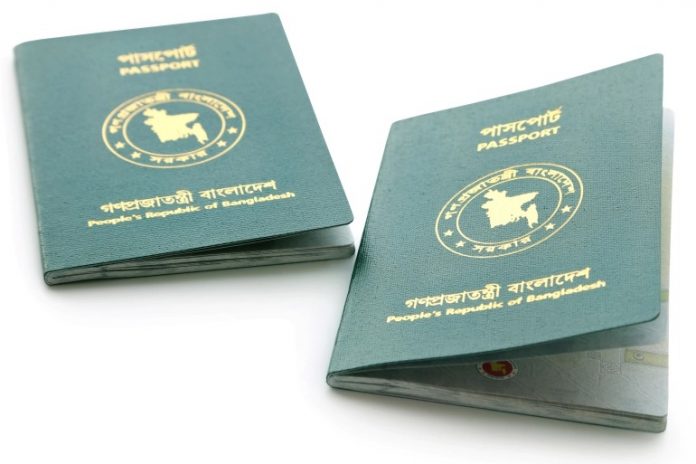
Bangladesh drops ‘except Israel’ clause from its e-passport at a time when Israel is being censured globally for its attacks in Gaza.
A decision by the government of Bangladesh to remove a clause from its e-passport that barred its nationals from visiting Israel has prompted speculation that the country might be looking to normalise ties with Israel.
The move to remove the “except Israel” clause from its e-passport has shocked people in the South Asian country of 160 million, with many questioning the decision that follows the deaths of hundreds of Palestinians in the Israeli bombing of the Gaza Strip.
Older Bangladeshi passports used to bear the sentence: “This passport is valid for all the countries of the world except Israel.” Six months ago, when the South Asian country rolled out its new e-passport, the “except Israel” phrase was removed without any public announcement.
Bangladesh was the first country in South Asia and the 119th in the world to introduce the e-passport – a travel document with a small integrated circuit, or “chip”, embedded in the cover or pages – in January last year.
That information came to light after Gilad Cohen, deputy director-general for Asia and the Pacific at the Israeli Ministry of Foreign Affairs, tweeted last week that Bangladesh had lifted its travel ban on Israel.
“Great news! Bangladesh has removed a travel ban to Israel. This is a welcome step and I call on the Bangladeshi government to move forward and establish diplomatic ties with Israel so both our peoples could benefit and prosper,” he tweeted.
The Bangladesh government, however, vehemently denied plans to establish any ties with Israel and said its position towards Israel remains the same.
AK Abdul Momen, the country’s foreign minister, on Wednesday told a media briefing attended by Al Jazeera that Bangladesh has not changed its position towards Israel. “No one from Bangladesh can visit Israel” and if anyone does, “legal action will be taken against that person,” the minister said.
The change to the new e-passport was only to “maintain international standard”, Abdul Momen said, without elaborating.
“Passport is just an identity and it doesn’t reflect the foreign policy of a country. The foreign policy of Bangladesh remains the same as it was during Bangabandhu’s (the founding father Sheikh Mujibur Rahman) time. We don’t recognise Israel,” the minister said.
No actual legal bars
However, after the change, Bangladeshi nationals can now travel to Israel from a third country if they can obtain a visa, immigration officials, who did not want to be named, told Al Jazeera.
None of 17 Legal Acts governing Bangladesh’s immigration rules, which Al Jazeera checked, can impose a bar on travelling to Israel, contradicting Abdul Momen’s assertion of legal action.
Al Jazeera spoke to several senior officials from the Immigration and Passports departments, none of whom could clarify whether a legal impediment to visiting Israel exists. One official, who preferred anonymity, told Al Jazeera that the passport and immigration acts could not stop a Bangladeshi from visiting Israel after the change.
Major General Ayub Chowdhury, director-general of the Department of Immigration and Passports of Bangladesh, told Al Jazeera that a passport alone was not enough to visit a country.
“You also need visa. If the country you want to visit doesn’t give you visa, you can’t visit the country,” he said.
Asked whether there would be anything to stop a Bangladeshi passport holder from visiting Israel if they were able to receive an Israeli visa in a third country, Chowdhury did not respond.
But former Bangladesh Foreign Secretary Md Touhid Hossain told Al Jazeera that he did not think any Bangladeshi with an e-passport would have “any trouble visiting there” once they obtained a visa.
Bangladesh had also previously barred its nationals from visiting apartheid South Africa – a decision that changed once white minority rule ended in 1994.
Taiwan was also a destination which older Bangladeshi passport-holders were barred from travelling to, Hossain said, but it was dropped from the banned list in 2004.
“We still don’t recognise Taiwan but there is no legal bar in visiting Taiwan. Bangladeshi people go there for various business purposes,” he said, adding that the same could now happen in the case of Israel.
Source: Al Jazeera
















